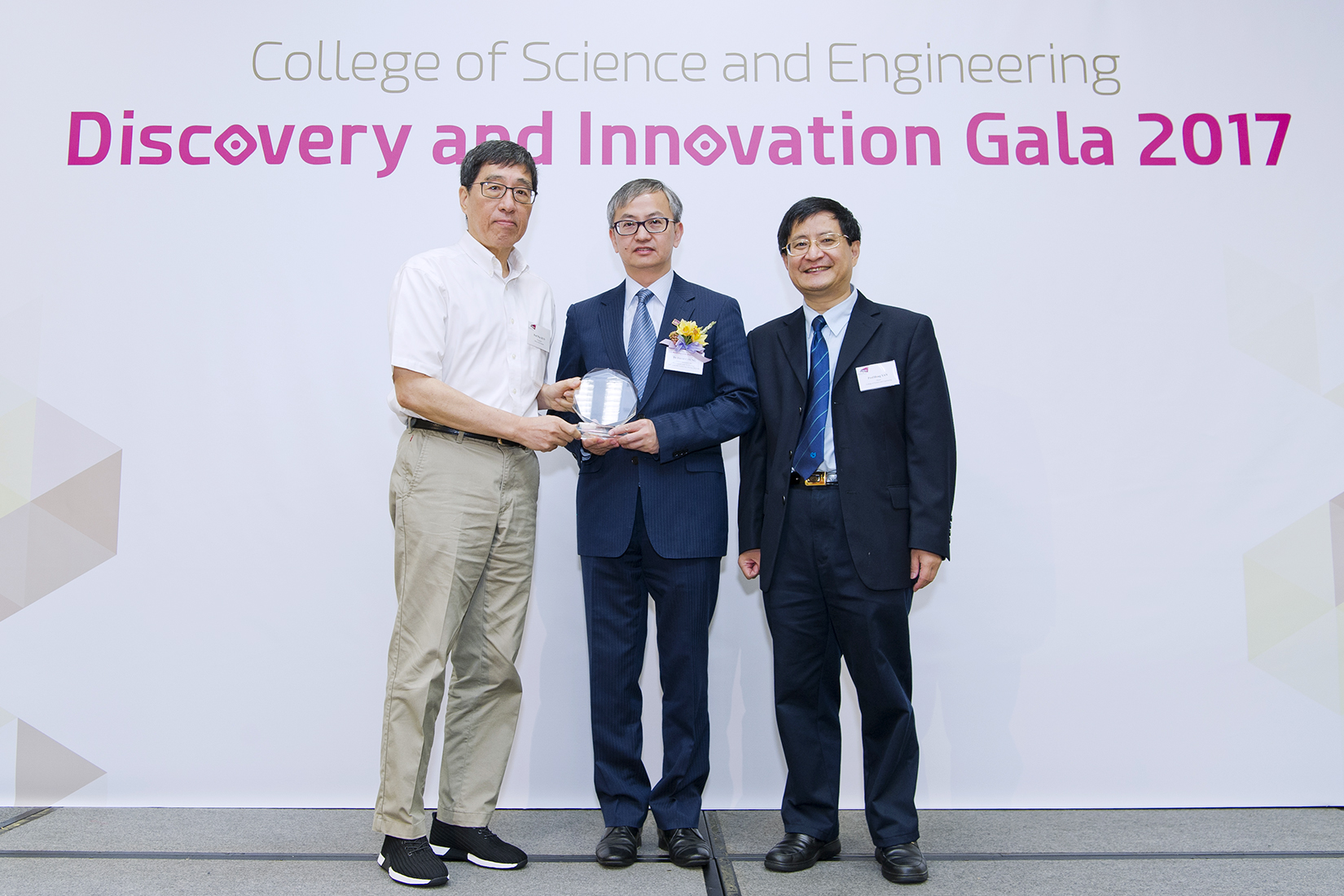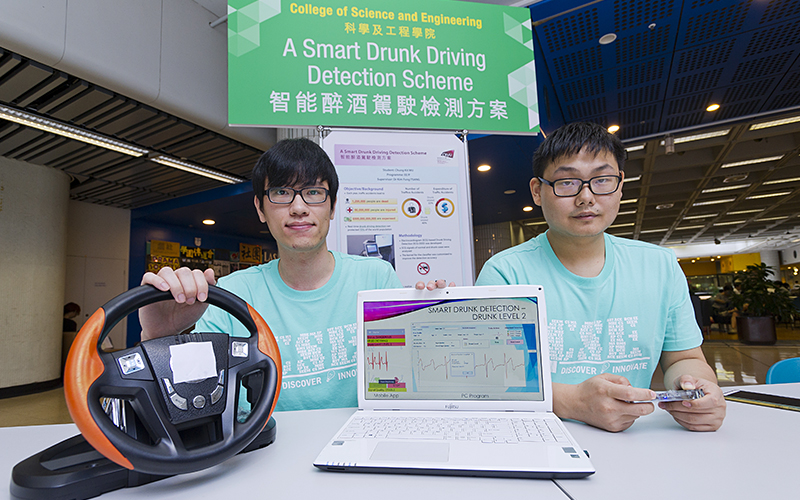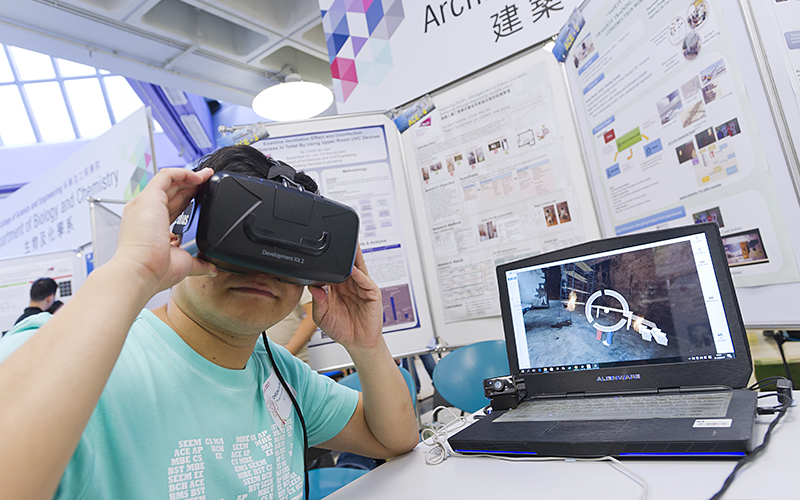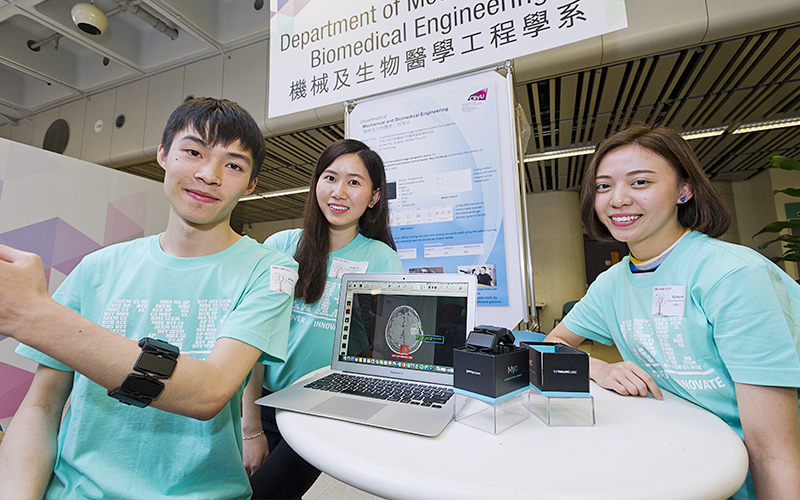Discovery and Innovation Gala showcases research achievements at CityU
Discoveries and innovations addressing real-life problems feature at the Discovery and Innovation Gala 2017 at City University of Hong Kong (CityU) from 21 to 22 June.
More than 100 research projects designed by students and academic staff from the College of Science and Engineering (CSE) are being showcased
The event, which is part of the 20th anniversary celebrations of the establishment of the Hong Kong Special Administrative Region, gives local communities a fuller picture of CSE’s strengths and expertise.
The Opening Ceremony on 21 June was officiated by Dr David Chung Wai-keung. Under Secretary for Innovation and Technology, HKSAR Government; Professor Way Kuo, CityU President; and Professor Yan Hong, Dean of CSE.
In his speech, Dr Chung said that CityU echoed the Government’s emphasis on Science, Technology, Engineering, and Mathematics (STEM) education, and he thanked CityU for enhancing the STEM experience of the secondary school students at the event.
Professor Kuo emphasised that ideas generated by the younger generation had the power to benefit Hong Kong society and the rest of the world. He added that innovation could be facilitated by integrating teaching and research, as was the case under CityU’s Discovery-enriched Curriculum.
He also talked about how the “transformable wheelchair” project devised by an undergraduate student at CityU was an excellent example of bringing innovation to the community.
Some of the projects highlight how students and academic staff have discovered smart solutions to problems in daily life.
Wu Chung-kit, a PhD student under the supervision of Dr Tsang Kim-fung, Associate Professor of the Department of Electronic Engineering, has developed the Smart Drunk Driving Detection Scheme to prevent drink-related traffic accidents.
In this project, electrocardiogram (ECG) signals from normal and drunk cases were studied and analysed to develop the classifier that will be used for detecting drunk driving.
“Statistics show that drunk driving is a major cause of traffic accidents, and so the system will help ensure safe transportation by sending pre-warning signals to alert the drivers, as well as monitoring their status continuously and in real-time,” he explained.
Cheung Chiu-wing, a student in the Department of Architecture and Civil Engineering, developed his project, “SAFETY FIRST!” - VR Safety Training System for Construction Work, after working in the construction industry as an intern where he found that safety management is highly complex.
“I found that the accident rate in the construction industry is the highest rate among all industries and so I would like to offer constructive workers an interactive, active and cognitive learning experience,” Chiu-wing said.
“Safety First!” demonstrates the different kinds of risks at a construction site and makes safety training more interesting.
Another project, Touch-free Biomedical Image Navigation System for Surgeons, involves a wearable gesture and motion control device called Myo armband. It was designed by students from the Department of Mechanical and Biomedical Engineering : Lo Karen, Leung Yin and Wong Chun-yin. Surgeons may need to retrieve patient’s medical records, such as X-ray images, MRI images or CT scans during surgery. This system enables surgeons to retrieve a patient’s medical images without touching unsterilised materials.
The device consists of eight electromyography sensors that measure electrical signals of the muscle cells in the user’s forearm, combining with a gyroscope, accelerometer and magnetometer.
The following three featured projects, will also be shown at the Gala:
· Learning Algebra Through Play: innovative software for teaching advanced mathematics to secondary school students and basic algebra to primary school students;
· Bio-Inspired 3D Printing of Lattice Metamaterials: adopting 3D printing technology, this project makes bio-inspired metamaterials by reproducing the cellular structure of bamboo and other natural materials;
· Waste Heat Recovery: a new energy landscape involving thermo-electric materials that generates electricity from waste heat or acts as excellent solid state refrigerators and heat-pumps.
Over the course of the two-day exhibition, CSE will also hold STEM workshops and seminars for secondary school students.



